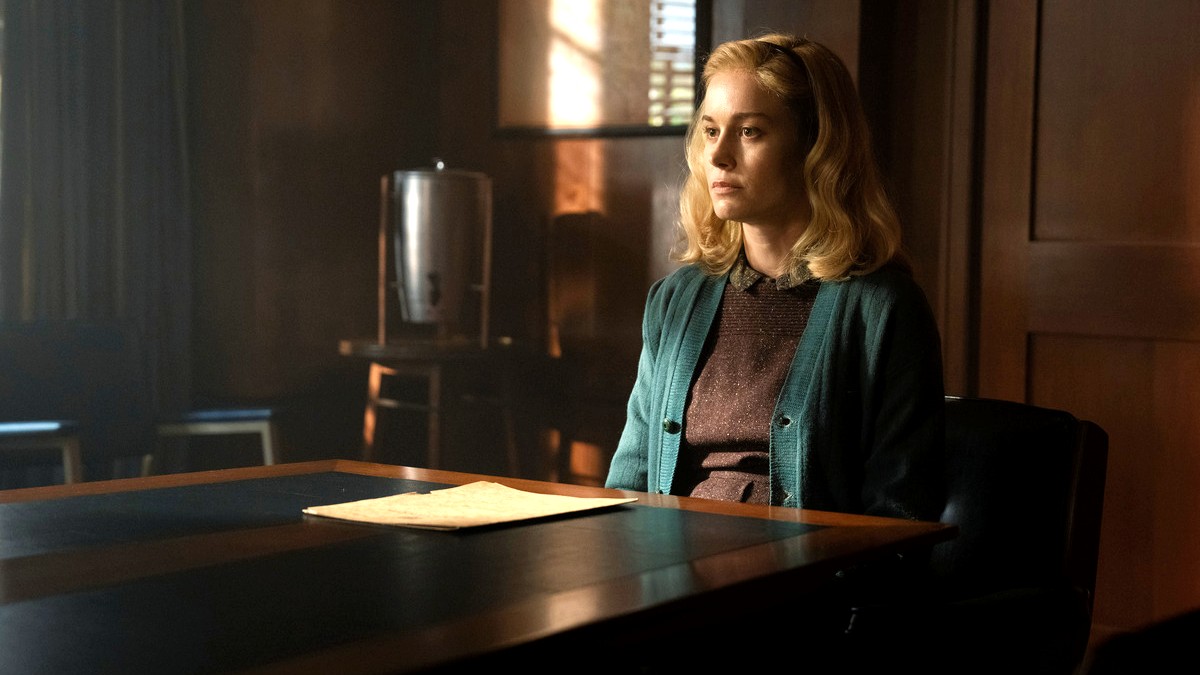‘Lessons in Chemistry’ Episode 3 Is Particularly Relevant in a Post-Roe v. Wade World

Lessons in Chemistry’s third episode, “Living Dead Things,” explores the realities of pregnancy in the 1950s, when women were denied abortions or birth control while also being discriminated against for pregnancy. What’s particularly harrowing is how eerily the episode parallels today’s post-Roe v. Wade world.
The show follows Elizabeth Zott (Brie Larson), an intelligent and passionate chemist who has struggled to rise in the industry due to sexism. Her male instructors prevented her from getting into a PhD program, leaving her little option but to work at Hastings Research Institute as a lab tech. Even though her title is lab tech, she is treated more as an intern, cleaning up after her male colleagues and fetching them coffee. Only in her free time does she get to study her true passion—abiogenesis.
Things start to change, though, when she meets Calvin Evans (Lewis Pullman). Like her, he’s an intelligent introvert, and she enlightens him about the workplace discrimination that he has been oblivious to. To remedy the situation, he brings her on as his partner so they can study abiogenesis together.
Eventually, their work partnership grows into a personal relationship. However, Zott has to explain that, although she loves being with him, she can never marry him or have a child with him because she knows that will be the end of her career. Evans understands this is her decision to make and accepts it. Unfortunately, agreement and understanding aren’t enough to weather the unpredictability of life.
Lessons in Chemistry parallels today’s post-Roe v. Wade world
**Spoilers ahead for Lessons in Chemistry through episode 3**
At the end of Lessons in Chemistry episode 2, “Her and Him,” Zott’s life is shattered when Evans unexpectedly passes away. In episode 3, in addition to navigating her grief, Zott discovers she’s pregnant. It didn’t really matter in the 1950s if a woman desired or resolved not to get pregnant. There was no birth control. There weren’t even pregnancy tests. Not only were women given no resources to prevent becoming pregnant, but abortions were also illegal. Additionally, there were no legal protections against pregnancy discrimination.
In the 1950s, it was already largely frowned upon for a woman to work, especially if it wasn’t in a field designated for women, like nursing, and there was even greater stigma around pregnant women or mothers working. Zott is forced to hide her pregnancy, but it isn’t long before it’s discovered, and she’s promptly fired after being degraded by her male bosses for being pregnant out of wedlock. She’s truly in an impossible situation. She’s not allowed to prevent her pregnancy or terminate it even though her partner is gone, but she’s also not allowed to work to provide for her child, nor is she offered any assistance or resources whatsoever. At a doctor’s appointment, her expression is one of haunting defeat as she admits she held off going because she was waiting and hoping for the pregnancy to “take care of itself.”
That’s the only thing she was allowed to do—to sit and wait and hope that it goes away by some chance. Unfortunately, things are startlingly similar today, especially after Roe v. Wade was overturned in June 2022, eliminating constitutional protections for abortion. As a result, multiple states have near-total bans on abortion. Things are slightly better now than they were 70 years ago because we have access to birth control and pregnancy tests, and laws are supposed to protect mothers and pregnant people from workplace discrimination. However, discrimination is very much still there, as are barriers to contraception access.
Many women are laid off during parental leave (if they even have jobs that offer leave) or expected to return to work immediately after giving birth. Additionally, with prices of child care rising and no resources to help with these costs, many people still find themselves in that endless, frustrating cycle of not being allowed to terminate a pregnancy if they desire to, but also not being able to work and provide for a child. Plus, the very same people who are staunchly against abortion or also often staunchly against the idea of universal healthcare. Women are forced to have babies but told they cannot access healthcare.
It’s easy to watch Lessons in Chemistry and dismiss the horror it perfectly captures surrounding Zott’s situation as fiction or otherwise removed from our current reality. After all, that was 70 years ago, and surely, things are different today. However, Zott’s story is too often a reality today, too, and it’s a painful reminder of how little things have actually changed.
(featured image: Apple TV+)
Have a tip we should know? tips@themarysue.com